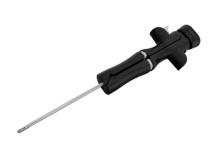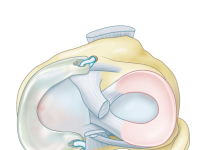UroMems has reported more positive results from a trial evaluating its UroActive device for the treatment of stress urinary incontinence.
The France-headquartered company stated the first female patient implanted with the device met the six-month primary endpoint. The patient is part of UroMems female first-in-human feasibility trial (NCT05828979), which will enroll six patients in total.
The news follows the results from a male first-in-human trial (NCT05547672), which also met its six-month primary endpoints.
Both trials are running in parallel to evaluate the device in men and women with the condition who have not responded to other forms of treatment. Treatment currently involves either surgery or Eli Lily’s antidepressant Cymbalta (duloxetine).
Primary endpoints in both trials include the rate of explants and revisions six months after device activation and the rate of device activation successes.
Results from the prospective, multicentre clinical studies will support the design and planning of an upcoming pivotal trial in Europe and the US. UroMems’ CEO and co-founder Hamid Lamraoui did not disclose details of the pivotal trial to Medical Device Network.
UroMems is carving out a new approach to manage stress urinary incontinence, a condition characterised by urine leakage when the bladder is under pressure such as when exercising or sneezing. It affects around 40 million Americans and is more common in women.
UroMem’s UroActive system uses the company’s MyoElectroMechanical System which is placed around the urethral duct and automatically changes the sphincter opening by pressure adjustments based on the patient’s activity. This has the advantage of not placing sustained pressure on the tissue when the patient is at rest.
In April 2023, the US Food and Drug Administration (FDA) granted UroActive with Safer Technologies Programme designation to speed up the device’s route to market.
In November 2023, Aviation Medical released positive data on its non-invasive bladder-control device for the treatment of urinary urgency and urge urinary incontinence caused by overactive bladder syndrome.
The pharma industry is also joining the medtech world in targeting new treatment options for patients with stress urinary incontinence. In November 2023, Switzerland-based Versameb received approval from the FDA to begin a Phase I clinical trial with the company’s mRNA therapy in women with the condition.




